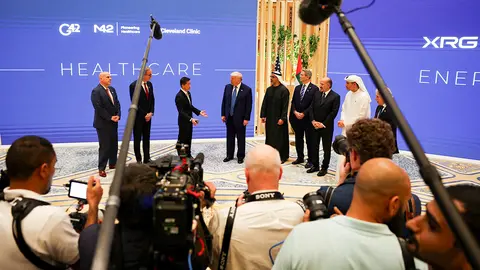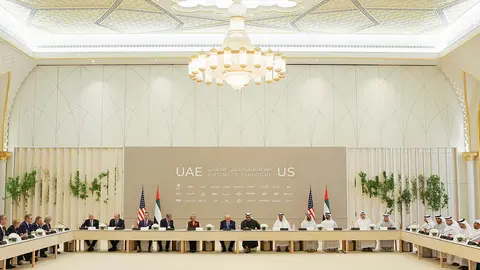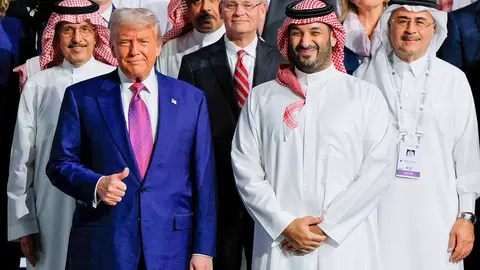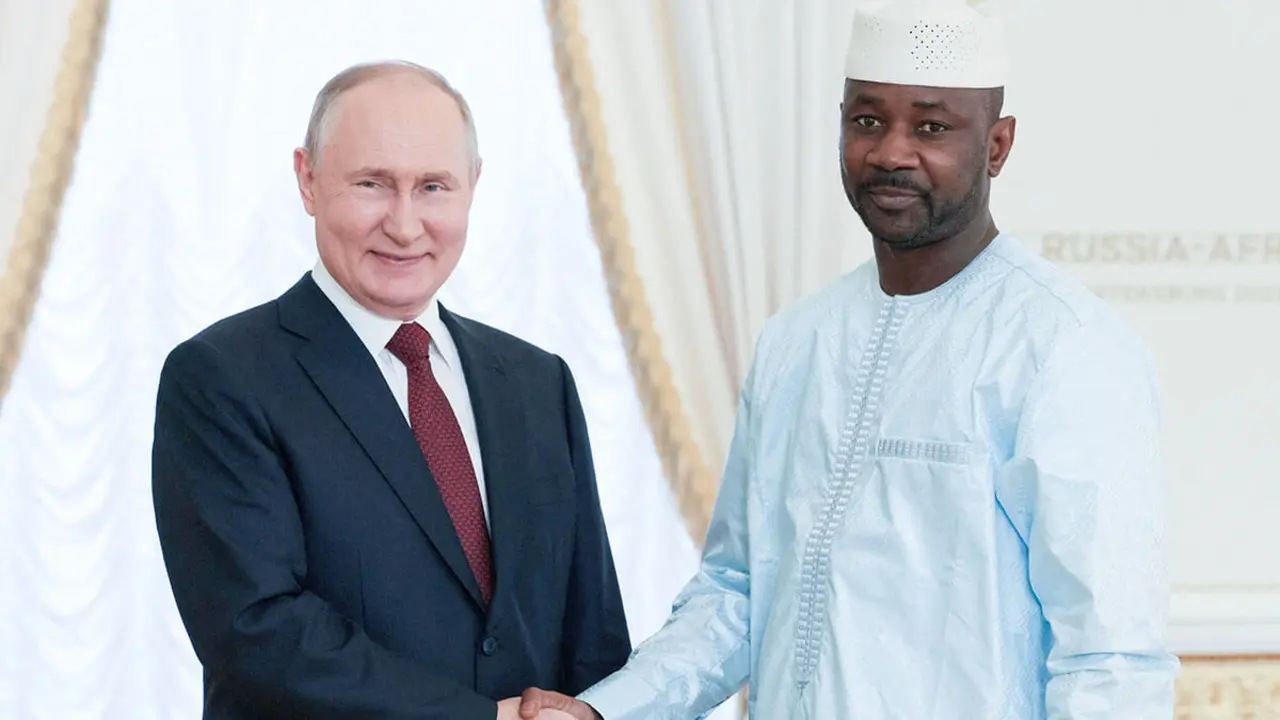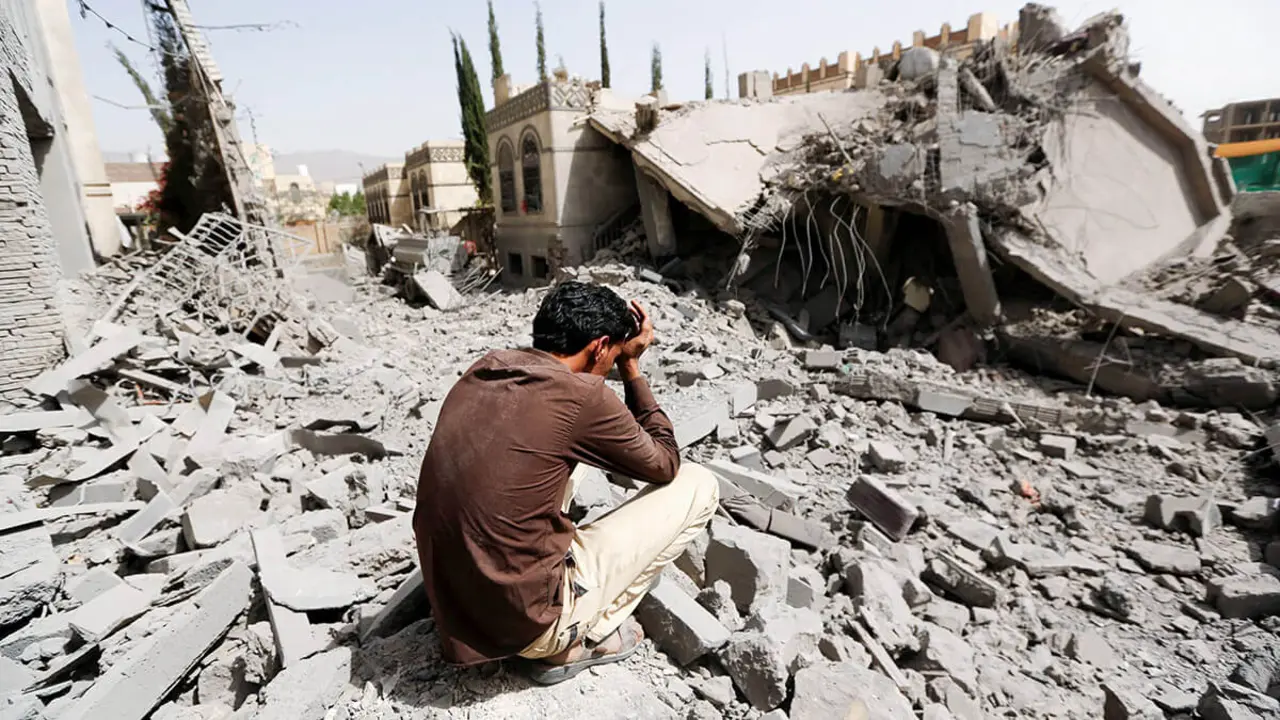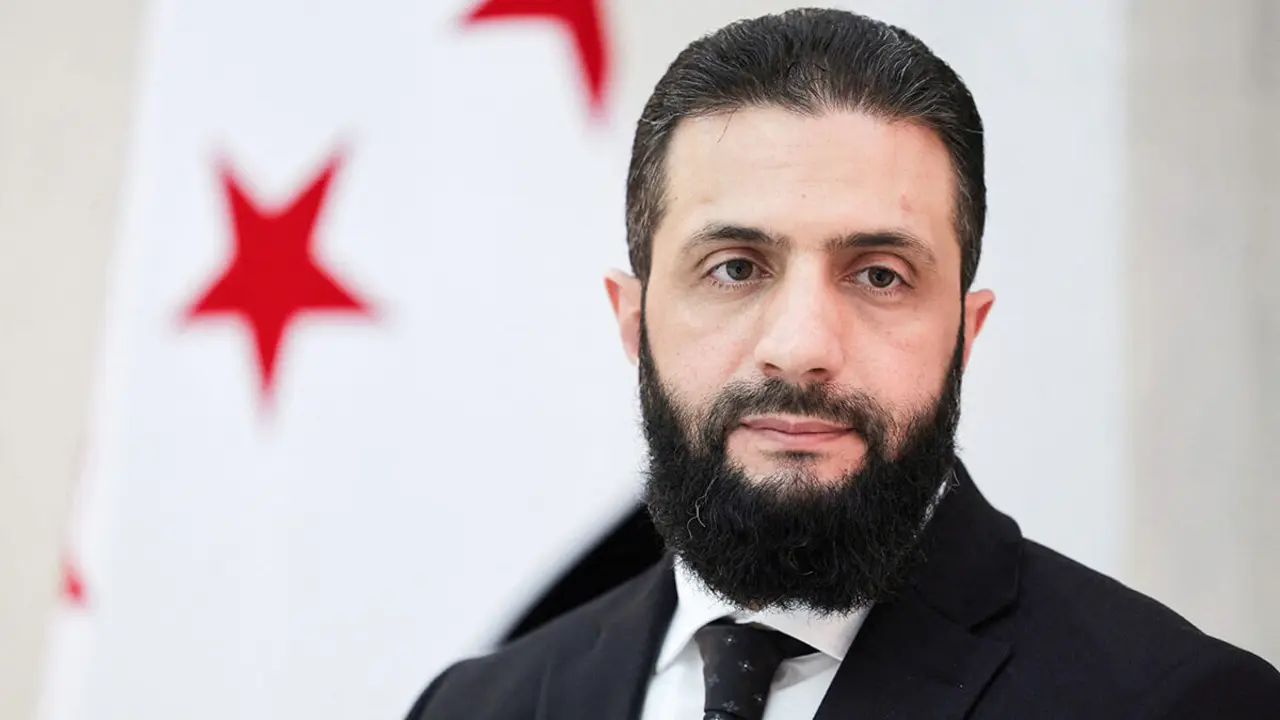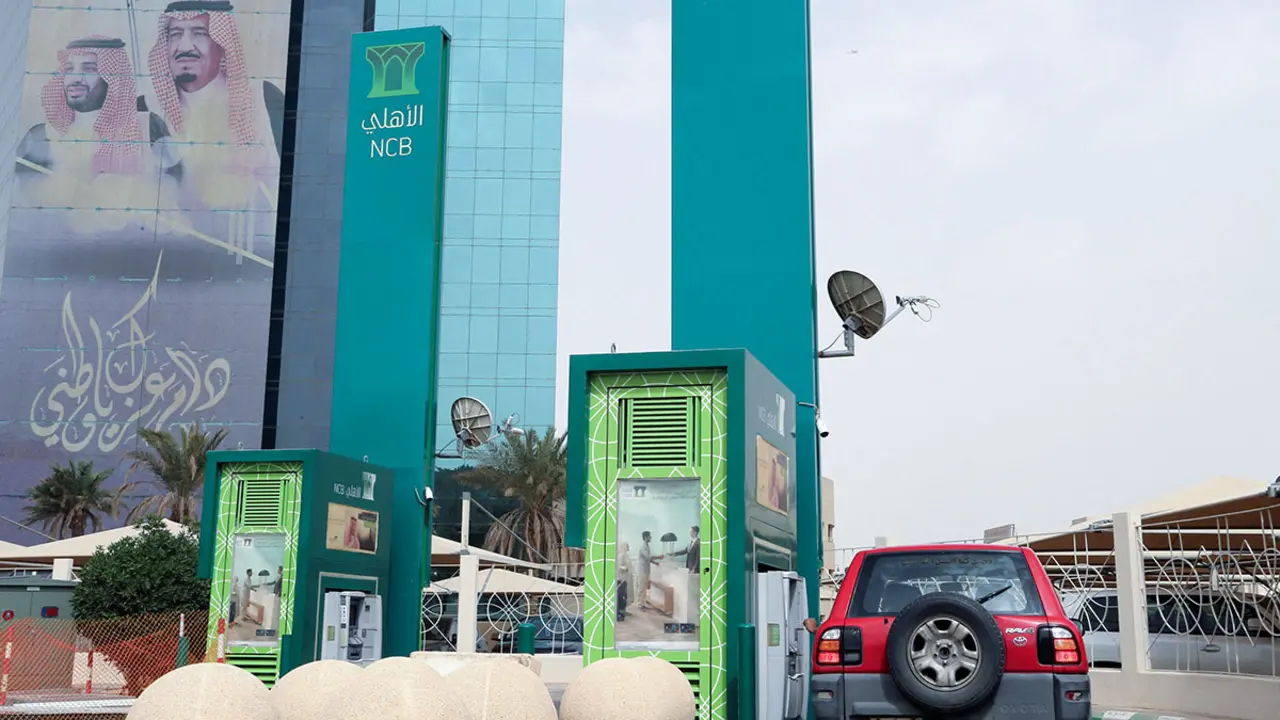Trump reshapes Middle East diplomacy with trade and strategic alliances
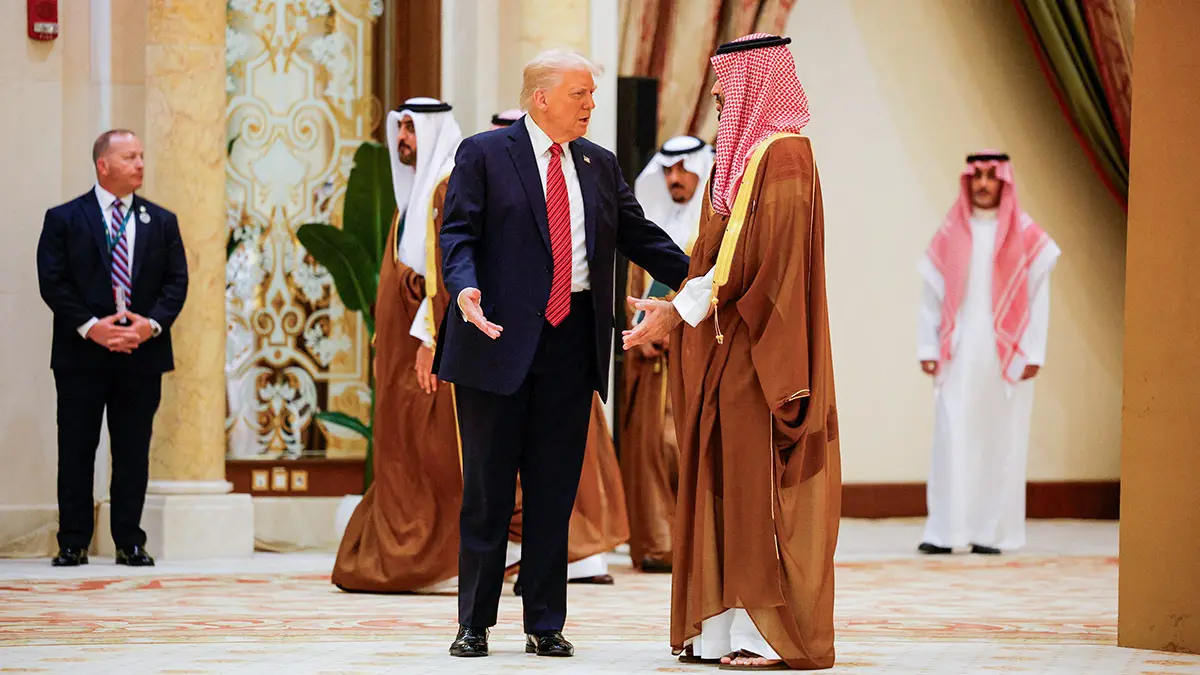
During his recent tour of the Middle East, US President Donald Trump surprised the world with a significant shift in Washington's foreign policy. In a style very different from that of his predecessors, especially Democrats such as Joe Biden and Barack Obama, Trump avoided moralistic speeches about democracy and human rights and instead presented himself as a pragmatic economic partner. The message was clear: the United States will not dictate how its allies in the region should act, but will build relationships based on mutual interests, shared benefits and sovereign respect.
In meetings with leaders from Saudi Arabia, Qatar and the United Arab Emirates, Trump emphasised a policy of ‘non-interference’, praising the region's economic development and describing the Gulf as a ‘modern Arab miracle’. This vision contrasts sharply with that of previous administrations, which used US influence to shape the political and social systems of their allies, often under the pretext of promoting human rights or fighting terrorism.
The US president did not hesitate to distance himself from George W. Bush's neoconservative line—with its interventions in Iraq and Afghanistan—and directly criticised the doctrine of ‘nation building’. ‘Ultimately, the so-called nation builders have destroyed far more countries than they have built,’ Trump said at an investment forum in Riyadh, implicitly criticising both Republicans and Democrats who backed military interventions in the Middle East.
Agreements over ideology
During his tour, Trump signed multi-billion-dollar investment and defence contracts with Gulf countries. Saudi Arabia, for example, announced a package of investments exceeding $100 billion in sectors ranging from artificial intelligence to renewable energy. This pragmatic approach has been well received by regional leaders, who for years have sought greater autonomy from Washington's interventionist policies.
Sina Toossi, an analyst at the Centre for International Policy, told Al Jazeera that ‘Trump's speech in Riyadh marked a clear and fundamental shift in US policy towards the Middle East.’ According to Toossi, this shift seeks to consolidate strategic alliances based on stability and economic benefits, rather than imported ideologies.
This new paradigm has generated a positive perception of both Trump and the United States, especially since many citizens in the region interpret these types of agreements as a deal between equals, rather than as external impositions.
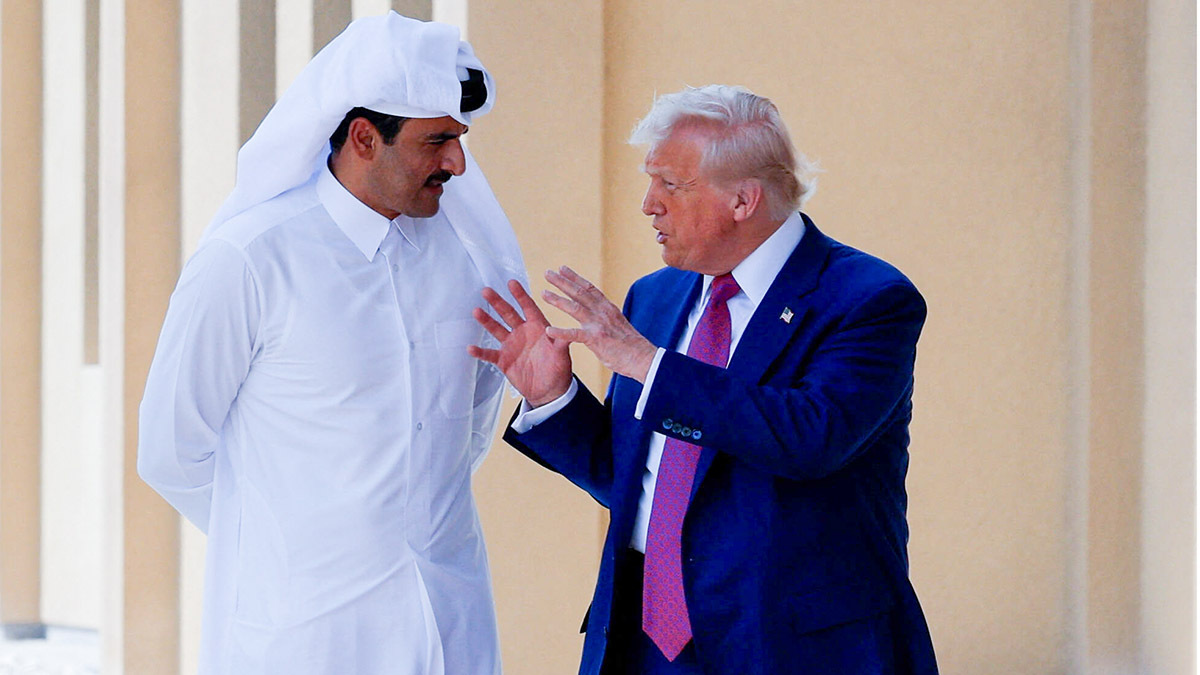
The case of Israel
One of the most symbolic gestures of this tour was the exclusion of Israel from the itinerary. Although no official statements were issued on the matter, analysts have interpreted this absence as a sign of distancing from Jerusalem at a particularly delicate time due to the war in Gaza, tensions with Iran and conflicts in Yemen.
Trump avoided explicit statements on the Palestinian-Israeli conflict during his regional trip, opting instead to promote a policy that prioritises the direct interests of the United States. This has created tension with the Israeli government, especially with Prime Minister Benjamin Netanyahu, whom Washington has excluded from recent multilateral talks on Iran.
However, Trump did express his desire for Saudi Arabia to join the Abraham Accords. In his inaugural speech to an investment forum, the president called Riyadh the United States' ‘strongest partner’ and expressed his ‘fervent desire’ for the Kingdom to join the Abraham Accords, although he acknowledged that this would depend on progress towards a Palestinian state and an end to the conflict in Gaza.
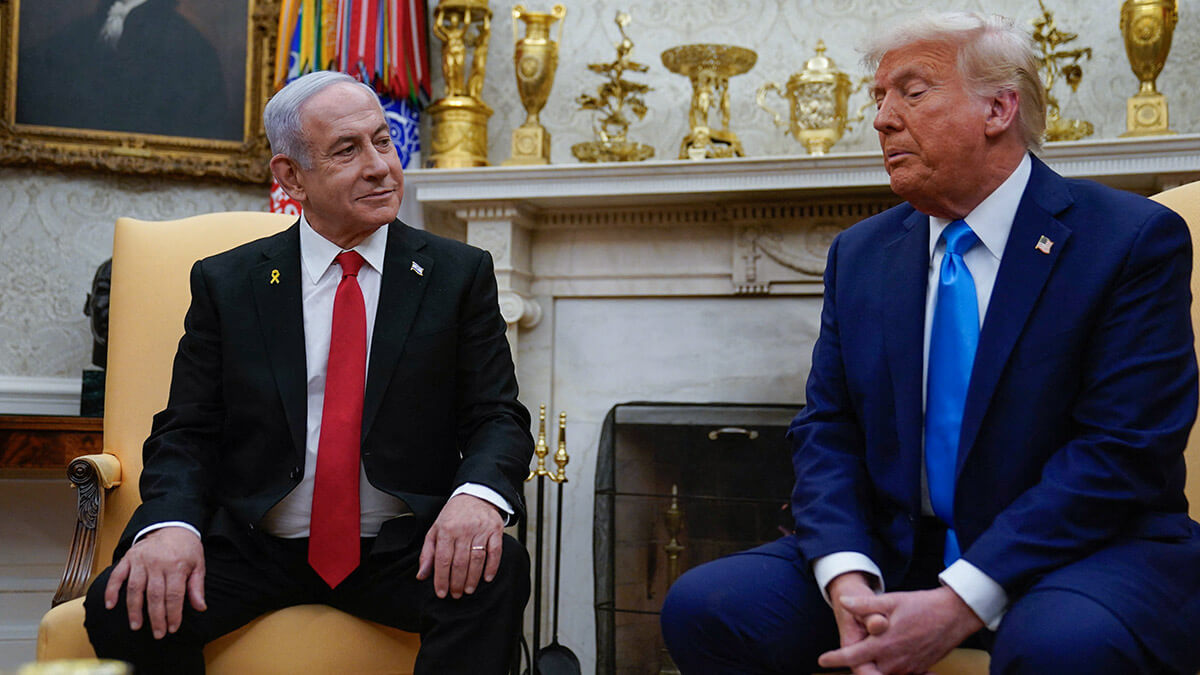
Amid this situation, and with the intensification of fighting in Gaza, the Trump administration has reportedly issued a harsh ultimatum to Israel, threatening to withdraw crucial support if Netanyahu fails to end the conflict, according to a confidential source quoted by The Washington Post.
US Ambassador to Israel Mike Huckabee has denied these reports, stressing to Israeli media outlet Ynet that it is necessary to ‘listen to what the president says, not what some uninformed “source” pretends to know.’
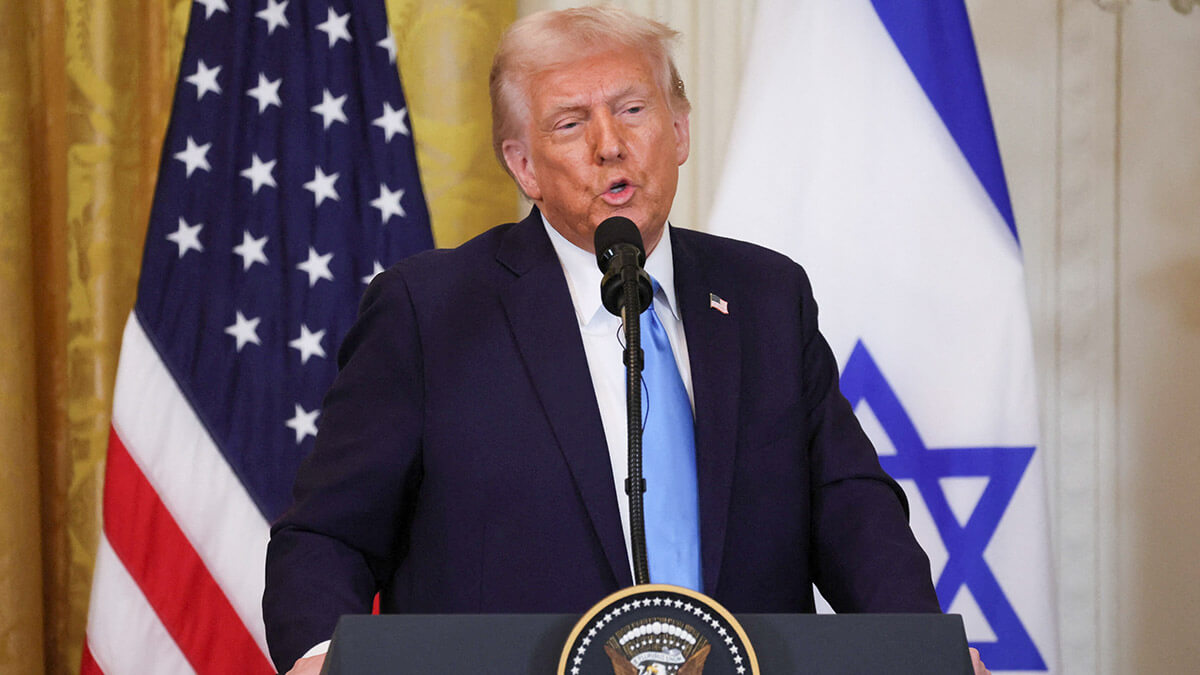
Indirect legitimisation of the new Syrian authorities
Perhaps one of the most controversial moments of the tour was when Trump spoke positively about Syrian President Ahmed al-Sharaa, previously designated by Washington as a terrorist wanted for his links to al-Qaeda. After announcing that he would lift sanctions imposed on Damascus, Trump described the new leader as ‘a charismatic young man with a rich past,’ giving a nod of legitimacy to the country, which represents a break with the previous policy of isolation.
This gesture can be interpreted as part of his strategy to minimise open fronts of conflict and focus on establishing zones of stability where the United States can operate to its own advantage. For many observers, legitimising previously demonised leaders is part of the brutal pragmatism that defines Trump's style.
Relationship with Iran
Despite the conciliatory approach towards the Gulf countries, relations with the Islamic Republic of Iran remain marked by ambivalence. Although Trump expressed his desire to reach a nuclear agreement—a position that distances him from some Republicans—he simultaneously issued harsh military threats if Tehran did not agree to his terms.
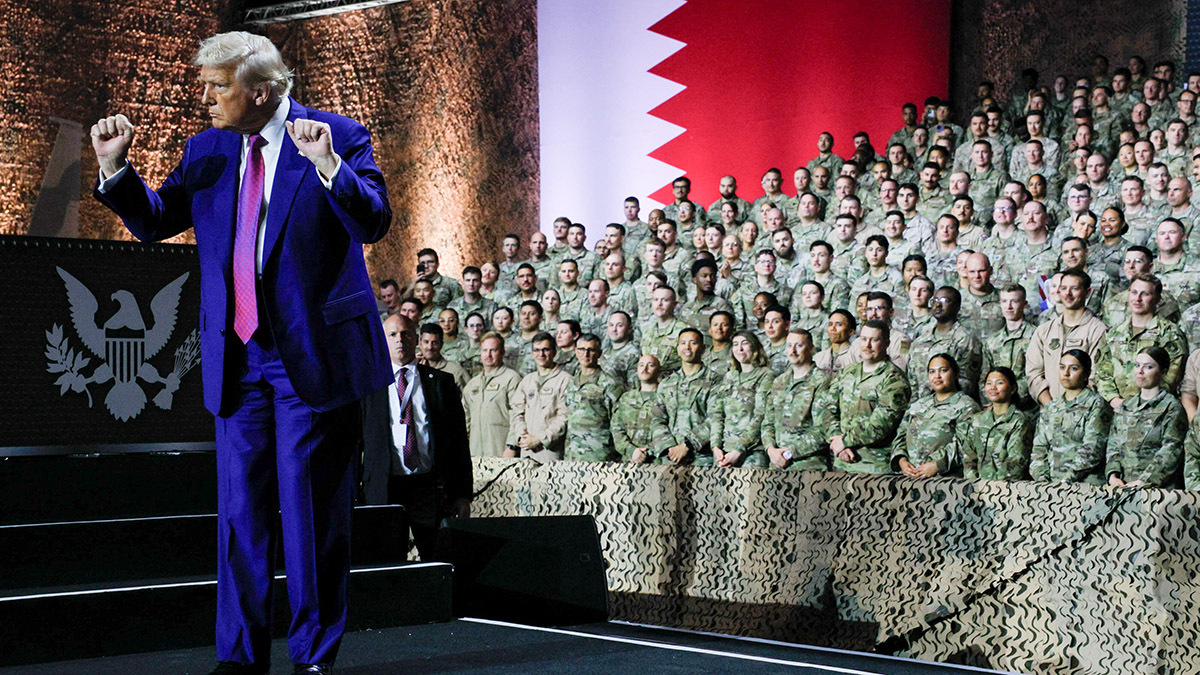
On board Air Force One, Trump told reporters that ‘Iran must act quickly on the US proposal for a nuclear deal or something bad will happen.’ However, in Tehran, both Supreme Leader Ali Khamenei and President Masoud Pezeshkian criticised Trump's contradictory approach. ‘Who should we believe?’ Pezeshkian asked rhetorically, referring to the contrast between messages of peace and threats of military action.
Supreme Leader Khamenei's statements accusing Trump of ‘lying’ when he talks about peace while supporting arms supplies to Israel highlight the tensions that this double-edged policy can generate. At the same time, the Iranian regime has denied receiving any formal proposal from Washington, further complicating the diplomatic landscape.
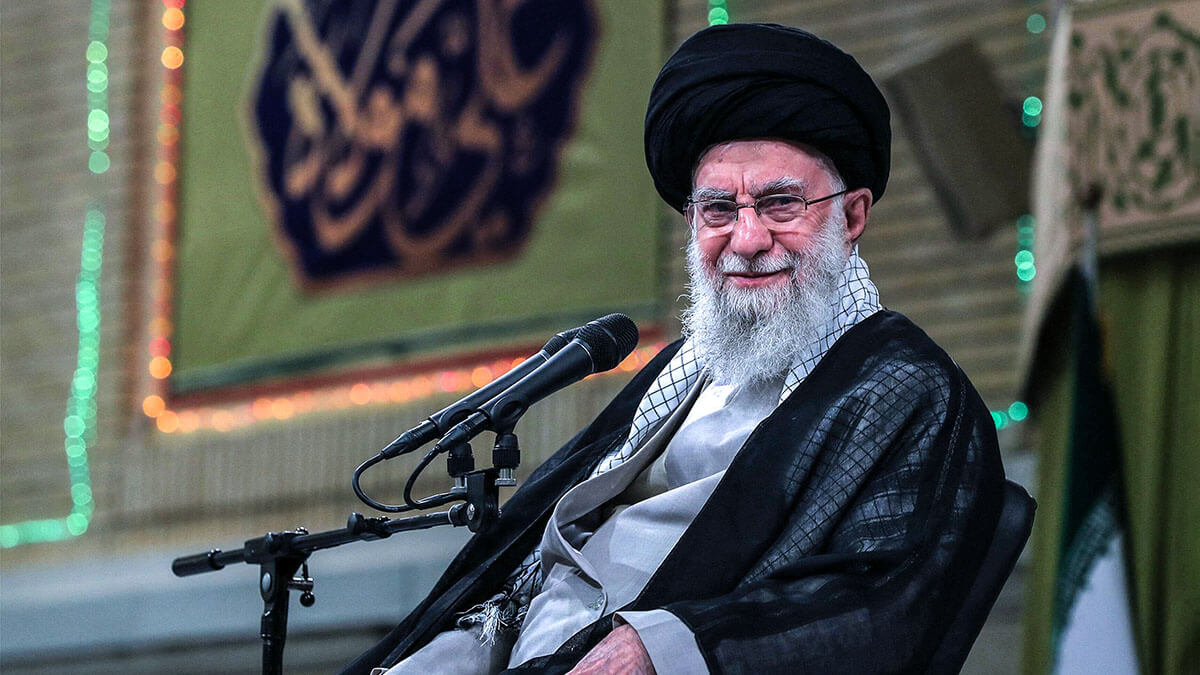
An effective policy, but with risks
Trump's new foreign policy in the Middle East is largely based on his business personality: closing deals, generating profits, avoiding prolonged emotional investments.
His recent tour of the region has marked a turning point in US foreign policy. By moving away from interventionist moralism and opting for an economic-pragmatic approach, the president has managed to forge new alliances and restore trust with key Gulf partners. This strategy has been particularly well received in a region historically wary of external impositions.
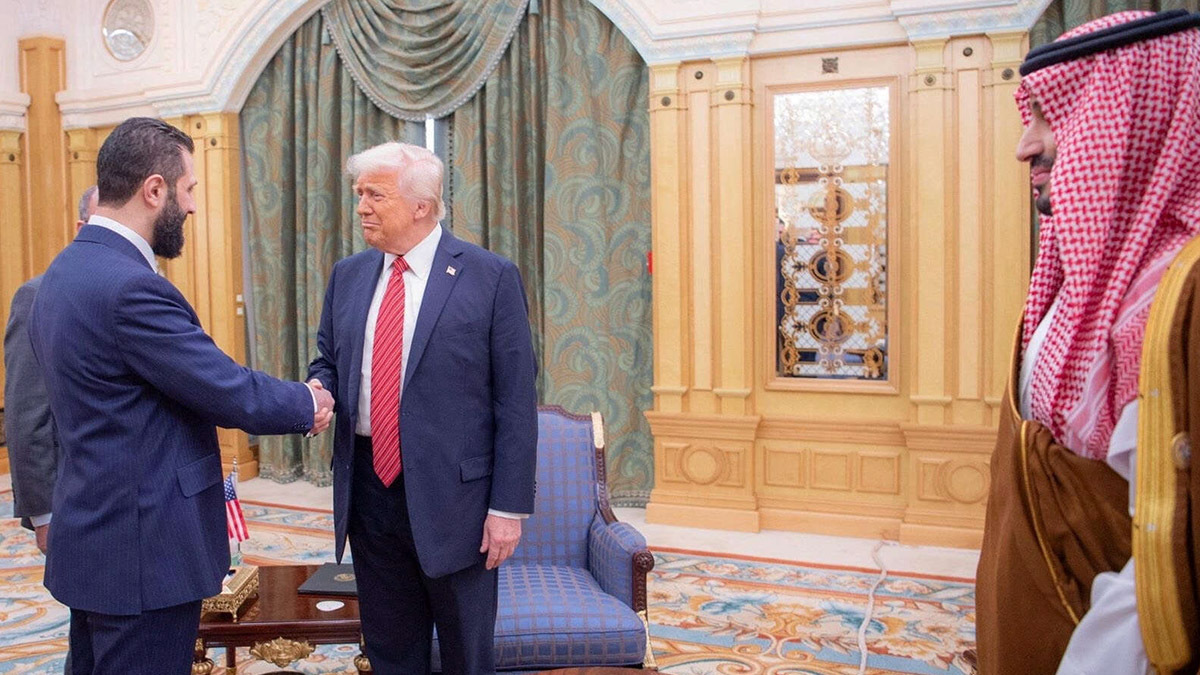
However, this policy also carries significant risks. The distancing of Israel—a traditional staunch ally of Washington—and the ambiguity towards Iran could generate diplomatic tensions. Furthermore, by relegating human rights to a secondary level, the United States runs the risk of legitimising authoritarian governments, weakening its global credibility as a defender of universal values.
Trump has opted for transactional diplomacy in which economic interests and regional stability take precedence over ideological doctrines. The success of this strategy will depend not only on its long-term consistency, but also on its ability to adapt to a volatile and constantly changing region, in a context marked by the growing influence of powers such as China and Russia.

